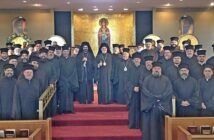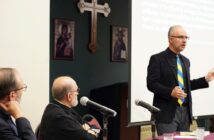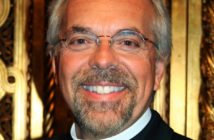Source: OINOS Consulting / Frankly Speaking
“Sanctify them by the truth; your word is truth.” John 17:17
Words mean things. At least they did prior to the advent of the current “post-truth” era wherein sophisticated tactics of deception have become a fashionable way of life. The degree to which political, business, and, yes, even contemporary religious leaders have manipulated words to shape public opinion and influence constituents is, indeed, alarming. But what exactly is “post-truth,” and how can leaders avoid the hazards of its persuasive lure?
“Post-truth” was selected by Oxford University Press (OUP) as the international word of 2016, an adjective defined as “relating to or denoting circumstances in which objective facts are less influential in shaping public opinion than appeals to emotion and personal belief.” Each year, the Oxford Press selects then narrows down a list of words that best highlight the manner in which the English lexicon is changing in response to current events. According to Katherine Martin, head of OUP’s American language dictionaries, “post-truth,” surpassed “alt-right,” “Brexiteer,” “adulting” (to engage in activities associated with adulthood), and “coulrophobia” (extreme or irrational fear of clowns) in the 2016 selection process of prominent verbiage.
Circumscribing the recent tumultuous presidential election and what many sociologists describe as the current “age of dishonesty,” the concept of “post-truth” can be traced back to late 19th century writings of Friedrich Nietzsche. The foremost chronicler of moral decadence, Nietzsche was first to predict the emergence of a “post-truth era.” Observing the rise of modernity, the German philosopher concluded that religious authority was declining and that Europe’s unified belief system was fortunately coming to an end.
Unlike Immanuel Kant, the Enlightenment philosopher who insisted that society could not remain healthy if it accepts lies, Nietzsche and his willing adherents discredited “truth” as the “grand societal narrative” of a repressive elite. Instead of a unifying “truth,” a new intellectual orthodoxy that permitted multiple “truths,” always personal and relativized were preferred. Consequently, Nietzsche celebrated the inauguration of a post-modern culture in which statements and sensitivities were framed largely by appeals to emotion. Completely disconnected from the tyranny of absolutes, these “post-truths” were immune to fact-based rebuttals, now characterized as credulous and unsophisticated.
The emergence of the “post-truth” worldview has had a negative rather than a positive influence on the confidence level of Americans towards the institutions that affect their daily lives. According to 2016 Gallup research, confidence in the nation’s major institutions continue to lag below historical averages, with banks, congress, and the news media dropping to record lows. In fact, the overall average of Americans expressing “a great deal” of confidence in the country’s major institutions is below 33% for the third straight year.
Evidence of the adverse effects of “post-truth” has not been relegated to academia, politics and business. On the contrary, the ill effects of Nietzschean Epistemology have also become discernable in faith-based institutions. While previous generations of religious adherents selected their faith communities based on creedal orthodoxy, research indicates that over 95% of the current population now make their choices based on “how they feel” when they leave their respective worship services. More alarming, in stark reversal of the not-to-distant past, over 70% of Christians now believe that the purpose of the Church is “not to glorify God” but to “meet their human needs.”
Like America, the global stage has not been immune to the depredations of “post-truth.” For example, in practicing what it calls dezinformatsiya(disinformation), the Soviet Union has for years sponsored its own form of dishonesty by promoting grand deceptions calculated to mislead, confound, and bias national as well foreign opinion. Tragically, some of these subterfuges have had a considerable negative impact on world affairs underscoring Socrates who warned that, “false words are not only evil in them-selves, but also infect the soul.”
The skillfulness with which leaders manipulate words is unprecedented. In his book, The Liars’ Tale: A History of Falsehood (2002), Jeremy Campbell insists that the new millennium is characterized as “an ethical twilight zone that allows us to dissemble without considering ourselves dishonest.” According to Campbell, “even though there have always been liars, lies have usually been told with hesitation, a dash of anxiety, a bit of guilt, a little shame, at least some sheepishness.” Now, Campbell asserts, “we have come up with rationales for tampering with truth so we can dissemble guilt-free . . . reconceive our values . . . and devise alternative approaches to morality.”
Like Campbell, author and academic, Ralph Keyes describes the post-truth era, as a time when “statements that may not be true” are considered “too benign to be called false.” In his book, The Post-Truth Era (2004), Keyes laments that in the current age “deceiving others has become a challenge, a game, and a habit.” Where once the boundary line between truth and lies was clear and distinct, he asserts that in this post-truth context “we are witnessing leaders who display the capacity to craft a reality that is neither meant to be truth or lie, but is mostly meant to be appealing to the emotions and beliefs of some parts of society.”
Finally, in his recent book, Lies, Incorporated: The World of Post-Truth Politics (2016), Ari Rabin-Havt investigates the history of organized misinformation in politics. Like Campbell and Keyes, Havt bemoans the rise of dishonesty in society. In particular, he laments today’s post-truth political landscapes that include “a carefully concealed but ever-growing industry of organized misinformation that exists to create and disseminate lies in the service of political agendas.” Using the deception campaign of the tobacco industry as a model, Havt identifies a number of other campaigns including public health care, the impact of the national debt, immigration reform, gun safety, voter suppression laws, and gay marriage that were aimed at forestalling or promoting legislation through the use of “post-truth” tactics.
Draining the swamps of the aforementioned political, religious, and trans-global “post-truth” eco-systems requires leaders who are willing to restore the currency of the “REAL.” Such leaders understand that the “Art of the Deal” must always be grounded on the “Art of the REAL.” They are leaders with integrity that guard against emotionally charged interactions that abuse emotions and influence stakeholders. REAL leaders, interested in reinstating health to their respective institutions, reduce the bogs created by “post-truth” fixations by pulling the plug on spin, fake news, and other deceptive communication strategies. While adherents of “post-truth” often advance distorted pictures of reality in an effort to drive forward their own agendas, REAL leaders avoid tactics that promote incomplete portrayals of facts that tap into bias and fear.
Truth is the anecdote to the deceptive practices that have been institutionalized at every level of the “post-truth” culture. But where can leaders turn to cultivate the art of the REAL in such a blatant and non-apologetic environment?
The strength to avoid the lure of the post-truth mentality requires leaders to faithfully return to the nation’s biblical foundations. In particular, the 17thverse of the 17th Chapter of the Gospel of Saint John has much to offer religious leaders who are committed to promoting the REAL in the 17th year of the 21st century.
The Gospel of John is replete with discussions concerning the topic of truth. In fact, it includes Pilot’s familiar ontological question: “What is truth” (John 18:38)? More significantly, in Chapter 17 the Evangelist records a prayer in which Jesus offered an answer to the Roman governor’s query, namely, “God’s word is truth” (John 17:17).
Since the sixteenth century, the 17th chapter of Saint John’s Gospel has been identified as the “high priestly prayer” of Jesus. Organized after the pattern of a farewell speech, the discourse includes a petition to the sanctifying power of truth. While many interpretations unfortunately link the word as truth to the Bible itself, a more comprehensive study of Saint John’s use of the Greek term “logos” (word) suggests that its sanctifying power rests in the very person of Jesus. Sanctification is not “correct knowledge” but the distinguishing deportment of people who are willing to submit to God’s truth in their life.
Understood in this fashion, “sanctification” refers to assimilation and separation. The term is frequently used in Scripture to denote the consecration of persons and/or things to the service of God. Consequently, the high priestly prayer of Jesus “sets apart” His disciples for leadership in the world according to the pattern of truth. In short, the disciples are to be the channels through which God’s “Truth” is to pass to others (John 17:20).
Church history is replete with leaders who evidence the sanctifying pattern of God’s Word as Truth by dispensing their respective responsibilities with the character qualities of love, wisdom, humility, and respect. According to Saint Paul, leaders who do not consent to words that promote godliness are “proud . . . perverse, and know nothing.” He insists that such leaders are “destitute of the truth, supposing that gain is godliness.” Alternatively, Saint Paul encourages his young protégée Timothy to “be a good leader” by training himself and others to adhere to the “truth” (1 Tim. 1:3 4, 6-7).
The word “truth” comes from the Greek word “aletheia” which means “factual,” “a reality,” or “genuine.” According to Saint Paul, leaders should have the words of truth “dwell richly within them” (Col 3:16). Like the wide leather belt worn by weightlifters to help support their backs, faith-based leaders who are compelled by their association to God to speak the truth with integrity should likewise wear a “belt of truth” (Ephesians 6:14). Emanating from the very nature of God, truth relates to a spiritual “way of life” that sanctifies and sets apart faith-based leaders for authentic purposes (John17:17–19).
Saint John Chrysostom, a notable Christian bishop and “golden-mouthed” preacher of the 4th-5thcenturies, exemplifies Saint Paul’s admonitions. Famous for his denunciation of abuses in the Church and Empire of his time, Chrysostom insisted on the application of Bible passages as medicine for the sanctification of everyday life. “I entreat you,” argued the bishop, “that you are careful for this life, and procure books that will be medicines for the soul. Let the Epistles, Acts, and the Gospels be your constant teachers,” he said, “for the cause of all evils is ignorance of the Scriptures.”
The historical influence of Sacred Scripture is not limited to Christendom. On the contrary, the Bible was also the most accessible and influential book in 17th-18th century America. When GeorgeWashington took the oath of office as the first U.S. president in 1789, he placed his hand upon the Bible while speaking the solemn 35 words required by the Constitution. Washington’s use of the Bible, however, was not limited to his inauguration. In fact, no literary text is referenced more frequently in his writings.
Like Washington, Abraham Lincoln was a passionate advocate of Holy Scripture. “This Great Book,” he once insisted, “is the best gift God has given to man. All the good the Savior gave to the world was communicated through this book. But for it, we could not know right from wrong.”
While not a constitutional requirement, all but three of America’s presidential leaders placed their hand on the Bible to indicate that they would dispense the responsibilities of their office with truth and the character qualities promoted in the world’s most read text. Theodore Roosevelt, John Quincy Adams, and Franklin Pierce did not utilize a bible at their respective inaugurations. The Bible’s ceremonial absence, however, should not be understood as a rejection of the book’s contents. On the contrary, like most gentlemen of their time and social standing, they liberally seasoned their Presidential discourses with biblical phrases and allusions. For example, in one of his most poignant texts, President Adams insisted that if a “nation in some distant region should take the Bible for their only law book and every member should regulate his conduct by the precepts . . . What a Eutopia – what a Paradise would this region be!”
Echoing the admonitions of Saints Paul and Chrysostom, as well as the sentiment of America presidents, Benedict, Pope Emeritus of the Catholic Church, insists that the contemporary Church can experience “a new spiritual springtime, if scripture study, life problems, and prayer remain inextricably linked.” Speaking to the 2006 Congress on “Holy Scripture in the Life of the Church,” the Pontiff said that the Church “must live off and be constantly renewed by the Word of God in the Holy Scriptures.”
More recently, meeting with the members of the Pontifical Biblical Commission on the “Inspiration and Truth in the Bible” (2013), Pope Francis explained that, like her Orthodox sister, the life and mission of the Catholic Church “are founded on the Word of God, which is the soul of theology as well as the inspiration of all of Christian existence.” The Pontiff noted, however, that the “Word of God, in the Catholic and Orthodox understanding, is not confined to the written testimony of Sacred Scripture. “The Word of God precedes the Bible and surpasses it,” Francis explained. “The center of our faith isn’t just a book, but a salvation history and above all a person, Jesus Christ, the Word of God made flesh.” Reaffirming the Church’s comprehensive understanding of the “high priestly prayer” found in the 17th Chapter of the Gospel of John, Pope Francis correctly stated that the “relationship between Christ, the Word Made Flesh, and the Scriptures, the written Word of God, lies at the heart of what the Church calls Sacred Tradition.”
The deceptive power of falsehood is as great a hindrance today as it was in previous eras. To counter the cultural ill effects of dishonesty, faithful individuals must emerge who are willing to adopt the instrumentality of a consecrated form of leadership. Only by accepting to have their hearts, conscience, and wills inspired by God’s “words of truth,” can REAL leaders hope to successfully expose the deceptive illusions of post-truth incarnations and, thereby, return lucidity and common sense to society.
The following is a list of eight (8) sanctifying words that may be woven into a taut durable belt of truth for REAL leaders.
- Empowerment: Truth empowers leaders to rely less on their own subjective desires and emotion and more on advancing aspirational visions that are authentic, honest, and noble.
- Transformation: Truth transforms leaders by providing instruction, guidance, training, and wisdom for life-long improvement.
- Inspiration: Truth inspires and helps leaders gain the patience to overcome difficulties. It supports intellectual endeavors with prayer and meditation that sanctifies the brain, fortifies the body, and restores calm to the soul.
- Conformity: Truth provides a comprehensive prospective that helps leaders reference a spiritual worldview that conforms to God’s words and not merely to the expedience of human situations.
- Humility: Truth encourages leaders to think less highly of themselves by praising God for their talents and acknowledging the assistance of others for their accomplishments.
- Discernment: Truth exposes deception. It helps leaders evaluate and discern good from evil by relying on the light of God’s words to disclose what is false. Truth provides a solid-footed exodus when the swamps of life seem insurmountable.
- Discipleship: Truth disciples. It engenders servanthood, not knowledge, as the characteristic of a genuine leader.
- Sanctification: Truth sanctifies leaders by separating them from societal conformity. God’s words provide leaders a higher standard of ethical morality that may not be perceived popular in post-truth environments.
On January 20th, Donald Trump was inaugurated as the 45th President of the United States. He did so by placing his right hand on two Bibles. One was the bible his mother gave him in 1955 when he graduated Sunday School, the other, the Bible used by President Abraham Lincoln during his inauguration.
Vice President Pence repeated his respective oath on the family Bible used by President Ronald Reagan during his gubernatorial and presidential inaugurations. More significantly, his hand was placed on a page that included a verse the he often referenced on the campaign trail: “If my people, which are called by my name, shall humble themselves, and pray, and seek my face, and turn from their wicked ways; then will I hear from heaven, and will forgive their sin, and will heal their land” (II Chronicles 7:14).
In the Foreword of his book, Amusing Ourselves to Death (2005), Neil Postman differentiates between the future visions of George Orwell and Aldous Huxley. According to Postman, while Orwell feared those who would “deprive us of information,” Huxley was terrified of those who would “give us so much that we would be reduced to passivity and egoism.” While Orwell feared that “truth would be concealed,” Huxley feared that “truth would be drowned in a sea of irrelevance.” Astute leaders should recognize that the advent of the Post-Truth Era has inaugurated a dystopian culture that fuses the worse aspects of both cautionary visions.
The message is clear. If society truly desires to extract itself from the cultural cul-de-sac in which it currently finds itself, its leaders must rest their hearts as well as their hands on the wise counsels of Sacred Scripture. Such inaugurations are not symbolic vestiges of the unsophisticated past but sacramental acts acknowledging the eternal primacy of Truth.



